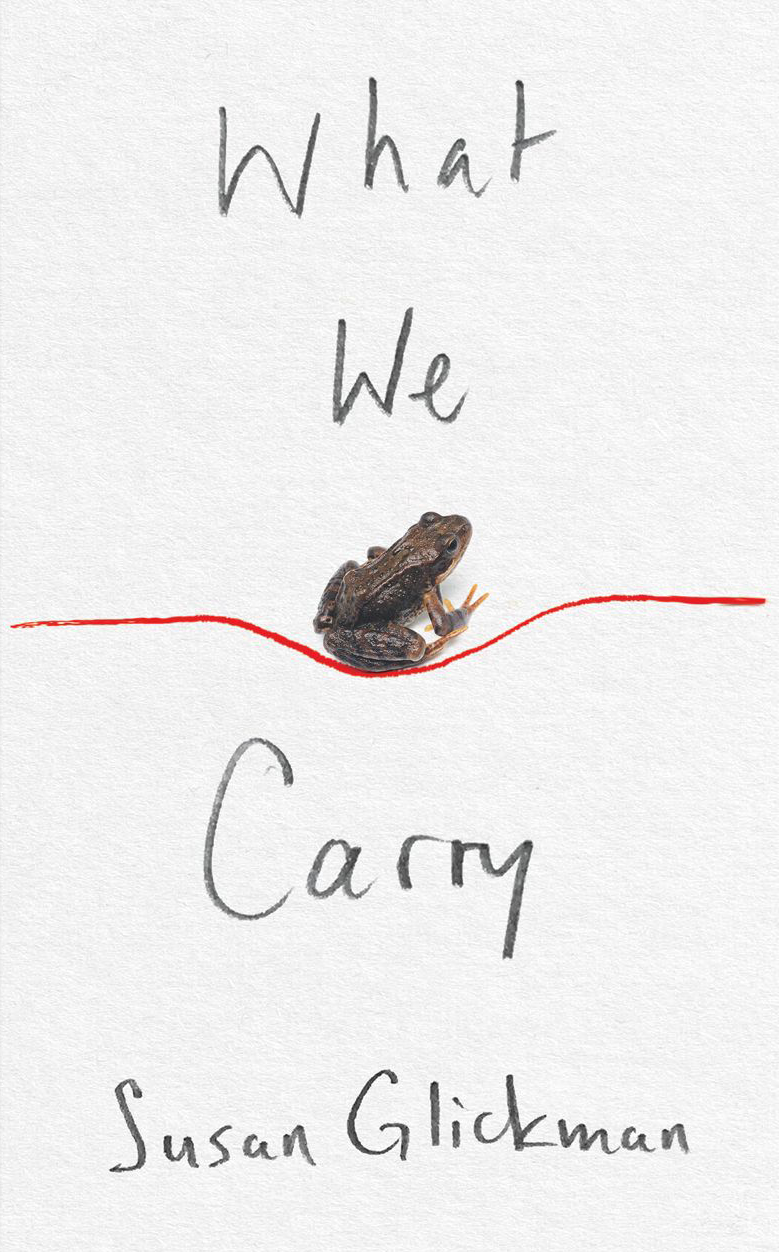What We Carry
“The respect paid to nature in this book is palpable and the sadness at its destruction is equally strong. The technical dexterity is as powerful as the emotions and shows a poet at the peak of her creativity.”
—Candace Fertile, Professor of English at Camosun College, writing in Quill and Quire
What We Carry is a profound exploration of the weight of human history at three levels: the individual, the cultural, and environmental. From her brilliant ‘Extinction Sonnets’ – odes to various disappearing species – to a spirited examination of everyday salutations, Susan Glickman’s range astonishes: ice storms, sugar maples, early love on the Orient Express, an archaeological dig at Mycenae. Serious but not solemn, full of linguistic and imagistic playfulness, the collection is anchored by poetic translations of Chopin’s 24 Preludes, opus 28 –his most experimental and characteristic compositions. The intimacy of Chopin’s project has inspired sound-rich poems that, once again, prove Glickman’s gift for capturing the frailty of human connections in a damaged world. ‘“First light and the last, / first love and the last.’”
From the reviews
“A keen awareness of mortality underlies the poems in Susan Glickman’s vibrant seventh collection. It’s expressed not as dread but as a bittersweet cherishing of what she holds dear, from memories to music to nature. As the Toronto poet and novelist puts it in one poem, ‘with more time behind you than ahead, / the world grows larger, pregnant with wonder.’ The world’s losses grow larger, too: ‘Elegies for the 21st Century’ is a series of sonnets addressed to various extinct species, including the river otter of Japan ‘once abundant as reeds in the waters.’ These lyric poems have an unassuming grace and clarity, and an eclectic range: Glickman ‘translates’ a number of Chopin’s 24 Preludes, Opus 28, into poems that mirror the mood of the music; elsewhere, she muses wittily on the travails of urban life, such as being ‘hemmed in … by backpacks and hockey bags, / groceries and gifts’ on a crowded streetcar.”
—Barb Carey, The Toronto Star
“These are beautifully written, intelligent, accessible poems.”
—Cary Fagan, recipient of the Vicky Metcalf Award for Young People for his body of work, for The Writers’ Trust
“What a pleasure at every level of reading – language and imagery, sound (suggested by the inclusion of bars from Chopin’s 24 Preludes) and rhythm, but most of all the narrator’s wise and thoughtful voice, spiked with just the right measure of tartness. ‘One definition of grace: nature / without us’ says the speaker, distressed by the extinction of species, on which she reflects in a series of beautiful sonnets tinged with irony. In ‘The Pyrenean Ibex,’ she concludes: ‘The things we killed / can never be restored, we know that now. / What we don’t know is who dies next, and how.’ The love of nature abounds in the attention Glickman pays to detail in her evocations of the natural world. Sorrow, too – both for the passing of species and the cruelty done to humankind. ‘Small’ (reflecting on the loss of artist Charlotte Salomon, a victim of Naziism) is anything but. ‘C Minor (Rogue Cell)’ is a sorrowful cry, contained in the poem’s careful language, until it strikes the reader in a separate and single devastating line (‘because everyone leaves in the end; everyone always leaves.’) Don’t miss this book. It’s finely-crafted poetry, timely and universal.”
—Award-winning author Carole Giangrande on Goodreads
“Glickman’s striking sensory poems are tightly controlled, even choreographed, with music in sections one, three, and five – loose, exquisite ‘translations’ of many Chopin preludes. Part two, five ‘Elegies for the 21st Century,’ balances the ‘Five Urban Salutations’ of part four. Historical and mythological richness imbues the text with unexpected humour, as when Clytemnestra shows rage by ‘flinging plates / at Agamemnon.’ ‘May Day’ (horrifying equivocation) concentrates on the unnecessary deaths of factory workers in Bangladesh. Imagery, as with the unexpected tenor becoming vehicle in ‘a scarlet peony sheds its petals / like a woman shrugging off her fur coat,’ intimates the importance of nature over humans.”
—Crystle Hurdle in Canadian Literature
“Summarizing either the thematic concerns or the stylistic characteristics of Susan Glickman’s latest collection, What We Carry, in a sentence or two – or even a paragraph – is virtually impossible. Several of the poems respond to Chopin’s Preludes. Others riff on slang phrases. Many explore the environmental crisis that human beings can no longer deny. Despite this variety, What We Carry consists of poems that are always individually interesting and yet also comment upon each other…
Glickman uses her straightforward diction to her advantage throughout the collection. It permits her to call attention to environmental collapse without sounding accusatory or self-righteous. She leaves readers to examine their own consciences. There’s a lot more to discuss in What We Carry – Glickman’s explorations of art and beauty and everyday life, her finesse with form, her ability to connect the one to the many—but rather than risk that her poetry will be lost in the analysis as it so often is in the translation, I’ll simply encourage readers to pick up this collection, then to explore her earlier work, and then to hope for more.”
—Lynn Domina
